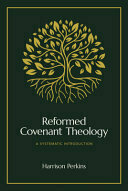
A friend of mine asked me the above questions to kick off my blog writing. He asked because he knew I was a former Anglican who served as a priest in the Episcopal Church for 17 years. Well, here goes!
So, do Anglicans consider themselves Reformed? Well, it depends on who you ask. King Henry VIII broke away from the Roman Catholic Church and started the Church of England (Anglican) to get a divorce from his first wife, Catherine. But the leaders of the new church were influenced by both Lutheran and Reformed ideas. They call this the English Reformation, but it was pretty different from the reforms of Luther and Calvin. The Anglican Church’s 39 Articles of Religion in 1563 had some strong Calvinist ideas about justification, predestination, and the sacraments. But over time, the Anglicans moved in a different direction, mixing in elements of Protestantism and Catholicism. Today, the 39 Articles isn’t considered the official rulebook (or the Bible, for that matter) for what’s right and wrong.
My friend has another question: Do Reformed Churches consider Anglicans Reformed? From a confessional Reformed (Westminster Standards) point of view, Anglicanism isn’t considered fully Reformed. Sure, the 39 Articles share some common ground with Reformed theology, but there are some key differences.
-
Church Government – Anglicanism retains episcopacy (bishops), whereas the Reformed tradition favors presbyterian or congregational polity.
-
Worship & Liturgy – Anglicans maintain a liturgical tradition rooted in the Book of Common Prayer, while Reformed worship, influenced by the Regulative Principle, tends to be simpler.
-
Sacraments – While rejecting transubstantiation, Anglicanism permits a broader range of views on the presence of Christ in the Eucharist. Reformed theology typically holds to a spiritual presence view.
-
Covenant Theology – The Reformed tradition has a more developed federal theology (Covenant of Works, Covenant of Grace), whereas Anglicanism does not emphasize this structure as clearly.
So, Anglicanism has some Reformed roots, and some Anglicans today are pretty Reformed in their beliefs. But mainstream Reformed churches don’t think Anglicanism is fully Reformed because of these differences.
What do you think? Do you agree or see it differently?
